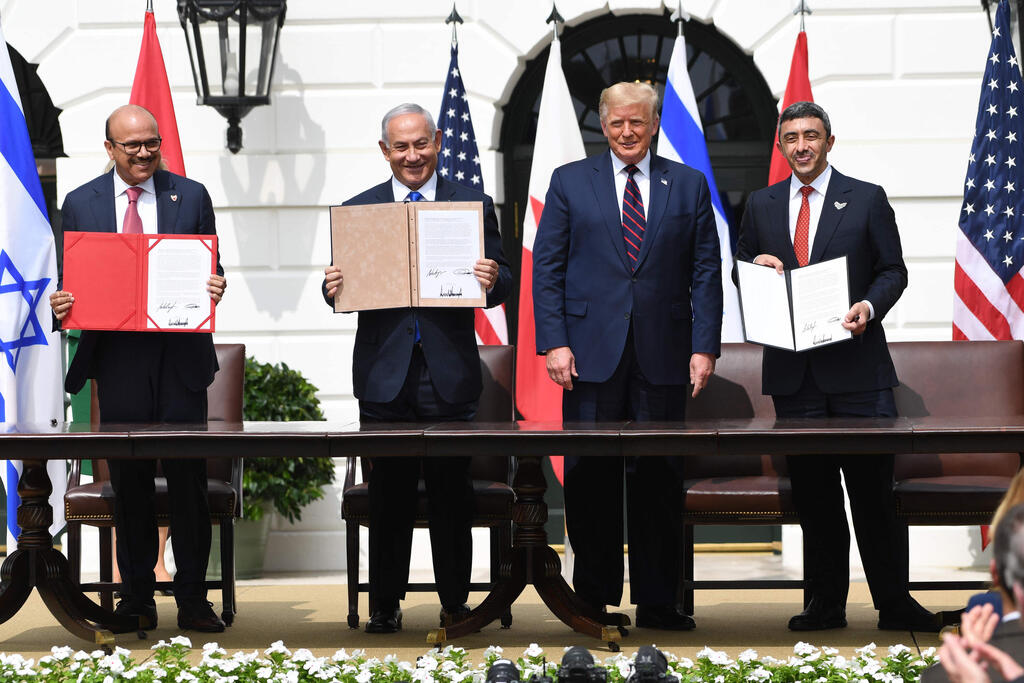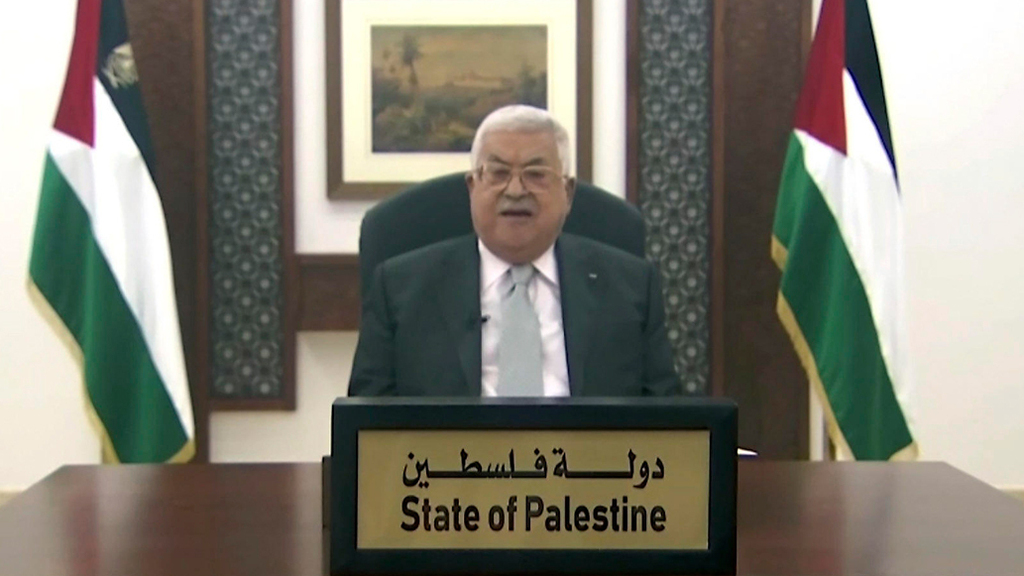Getting your Trinity Audio player ready...
Palestinian President Mahmoud Abbas on Friday called for United Nations Secretary-General Antonio Guterres to convene an international conference early next year to launch "a genuine peace process" between Israel and the Palestinians.
Abbas urged Guterres to work with the Middle East Quartet of mediators - the United States, Russia, the European Union and the UN - and the UN Security Council on a conference "with full authority and with the participation of all concerned parties, early next year, to engage in a genuine peace process."
The Palestinians want a state in the West Bank and Gaza Strip with east Jerusalem as its capital, all territory captured by Israel in 1967. Palestinian leaders rejected a peace proposal unveiled in January by U.S. President Donald Trump, in which Washington would recognize Jewish settlements in occupied territory as part of Israel.
"There will be no peace, no security, no stability and no coexistence in our region while this occupation continues and a just, comprehensive solution to the question of Palestine, the core of the conflict, remains denied," Abbas told the 193-member UN General Assembly in a video pre-recorded due to COVID-19.
He said the Palestinians remained committed to the 2002 Arab Peace Initiative, drawn up by Saudi Arabia, in which Arab nations offered to normalize ties with Israel in return for a statehood deal with the Palestinians and full Israeli withdrawal from territory captured in 1967.
2 View gallery


L-R: Bahrain FM Abdullatif Alzayani, Prime Minister Benjamin Netanyahu, U.S. President Donald Trump and Emirati FM Abdullah bin Zayed Al-Nahyan at the signing of the Abraham Accords at the White House
(Photo: AFP)
The United Arab Emirates and Bahrain signed agreements last week to establish ties with Israel, becoming the first Arab states in a quarter century to break a longstanding taboo. The Palestinians denounced the move.
Saudi Arabia's King Salman bin Abdulaziz, in his debut speech to the United Nations on Wednesday, said the Arab Peace Initiative is the basis for a "comprehensive and just solution," but also said he supported U.S. peace efforts. He stopped short of endorsing the recent U.S.-brokered agreements.
Saudi Arabia has quietly acquiesced to the deals but has signaled it is not ready to take similar action.
First published: 20:29, 09.25.20


